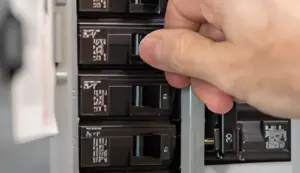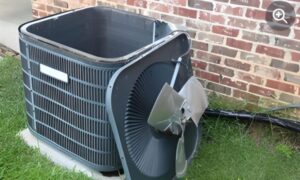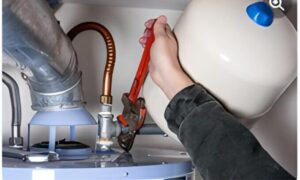Best HVAC Unit for Your Home Buying Guide
This comprehensive guide is on finding the best HVAC unit for your home. Choosing the right heating, ventilation, and air conditioning (HVAC) system is crucial for maintaining a comfortable and energy-efficient living space. With numerous options available in the market, it can be overwhelming to make the right decision. That’s where this buying guide comes in.
In this guide, we will walk you through the various types of HVAC units, considerations for selecting the best location, understanding efficiency ratings, installation requirements, and maintenance needs. By the end, you will have a clear understanding of the factors to consider when purchasing the best HVAC unit that suits your home’s specific needs.
So, let’s dive in and make an informed choice for your home’s heating and cooling needs.
Types of HVAC Units
Understanding the different types of HVAC units is essential for making an informed decision when purchasing a system for your home. When considering the types of HVAC units available, several factors should be taken into account, including energy consumption, cost analysis, size considerations, noise levels, and environmental impact.
Energy consumption is a critical factor to consider when choosing an HVAC unit. Different types of units have varying energy efficiency ratings, which determine how much energy they consume. It is important to select a unit that offers optimal energy efficiency to reduce utility costs and minimize environmental impact.
Cost analysis is another crucial aspect to consider. HVAC units vary in terms of initial purchase costs, installation costs, and ongoing maintenance expenses. Conducting a cost analysis can help determine the most cost-effective option for your home.
Size considerations are important to ensure that the HVAC unit is appropriately sized for your home. An undersized unit will struggle to adequately heat or cool your home, leading to increased energy consumption and discomfort. Conversely, an oversized unit will cycle on and off frequently, leading to unnecessary wear and tear and higher energy bills.
Noise levels should also be taken into account, especially if the unit will be installed near living spaces or bedrooms. Some HVAC units are designed with noise reduction features to provide quiet operation.
Lastly, the environmental impact of an HVAC unit should not be overlooked. Consider units that use environmentally friendly refrigerants and have low emissions to minimize your carbon footprint.
Location Considerations
When considering the best HVAC unit for your home, it is important to take location considerations into account. Here are three key factors to consider:
- Climate suitability: The climate in your area plays a crucial role in determining the type of HVAC unit you should choose. For example, if you live in a hot and humid climate, you might want to consider a unit with a higher cooling capacity. On the other hand, if you live in a colder climate, a unit with a strong heating capability would be more suitable.
- Noise regulations: Some neighborhoods and localities have noise regulations in place, which restrict the noise levels emitted by HVAC units. It is important to check these regulations and choose a unit that complies with them. This ensures that your HVAC system operates without causing any disturbance to you or your neighbors.
- Space availability: The size and layout of your home will determine the space available for installing an HVAC unit. Consider whether you have enough space indoors or outdoors to accommodate the unit. If space is limited, you may need to explore compact or space-saving options.
In addition to these location considerations, it is also essential to factor in energy costs and consult with local HVAC contractors. They can provide valuable insights and guidance based on their knowledge of the local climate, regulations, and energy efficiency options.
Efficiency Ratings
To assess the efficiency of an HVAC unit, it is vital to evaluate its energy consumption and performance. Efficiency ratings provide valuable information about the unit’s energy savings, cost effectiveness, and environmental impact.
Energy savings are an essential consideration when choosing an HVAC unit because it directly affects the homeowner’s utility bills. A higher efficiency rating means the unit uses less energy to provide the same level of heating or cooling, resulting in significant cost savings over time.
Cost-effectiveness is another key factor to consider. While more efficient units may have a higher upfront cost, they often pay for themselves through energy savings in the long run. It is important to assess the return on investment and weigh the initial cost against the potential energy savings over the unit’s lifespan.
Environmental impact is a growing concern for many homeowners. An HVAC unit with a higher efficiency rating typically has a lower carbon footprint due to reduced energy consumption. By choosing a more efficient unit, homeowners can contribute to a greener and more sustainable future.
When evaluating efficiency ratings, it is important to consider both the cooling capacity and heating efficiency. Cooling capacity refers to the unit’s ability to cool a space effectively, while heating efficiency measures how efficiently the unit converts energy into heat. It is crucial to choose an HVAC unit that meets both cooling and heating requirements to ensure optimal performance and energy efficiency.
Installation Requirements
Once the efficiency ratings of an HVAC unit have been considered, the next step is to address the installation requirements. Proper installation is crucial for the efficient and effective operation of your HVAC system. Here are three important factors to consider during the installation process:
- Electrical connections: Installing an HVAC unit requires working with electrical connections. It is essential to ensure that the electrical supply is compatible with the unit’s power requirements. This includes checking the voltage, amperage, and wiring capacity to prevent any electrical issues or damage to the unit.
- Ductwork requirements: HVAC systems rely on a network of ducts to distribute conditioned air throughout your home. During installation, it is necessary to assess the existing ductwork for leaks, obstructions, and proper sizing. Ensuring proper ductwork will optimize the airflow and maintain consistent temperatures in every room.
- Permits and regulations: Before installing an HVAC unit, it is important to check local permits and regulations. Some areas require permits for HVAC installation, and failure to comply can result in fines or complications. Additionally, certain regulations may dictate the placement and noise levels of the unit, so it is crucial to adhere to these guidelines.
Given the complexity of the installation process and the importance of doing it right, it is highly recommended to hire professional technicians. They have the expertise and knowledge to navigate the installation requirements, ensuring a properly functioning and compliant HVAC system for your home.
Maintenance Requirements
Regular maintenance is essential for ensuring the optimal performance and longevity of your HVAC unit. By following a few key maintenance practices, you can keep your system running smoothly and efficiently.
One important aspect of maintenance is seasonal cleaning. This involves removing any dirt, debris, or dust that may have accumulated on the unit’s exterior or in the surrounding area.
Regular filter replacement is another critical step in maintaining your HVAC unit. Filters should be changed every one to three months, depending on the manufacturer’s recommendations and the level of usage. This helps to ensure proper airflow and prevents the build-up of dirt and allergens in your system.
An annual professional inspection is highly recommended to identify any potential issues and ensure that your HVAC unit is operating at its best. During this inspection, a trained technician will check for any leaks, faulty connections, or worn-out components. They will also assess the lubrication needs of your system. Lubrication is crucial for reducing friction and preventing wear and tear on moving parts.
In addition to these tasks, it is important to pay attention to the electrical system maintenance of your HVAC unit. This includes inspecting the wiring, connections, and electrical components for any signs of damage or malfunction. Regularly cleaning and inspecting the fan blades and condenser coils can also help to maintain the efficiency of your unit.
Conclusion
In conclusion, selecting the best HVAC unit for your home requires careful consideration of various factors.
From understanding the different types of units available and evaluating their efficiency ratings to taking into account the location and installation requirements, each aspect plays a crucial role in ensuring optimal performance.
Proper maintenance is also essential to ensure longevity and efficiency.
Like a well-tuned symphony, the right HVAC unit harmonizes with your home, providing comfort and tranquility throughout the seasons.








